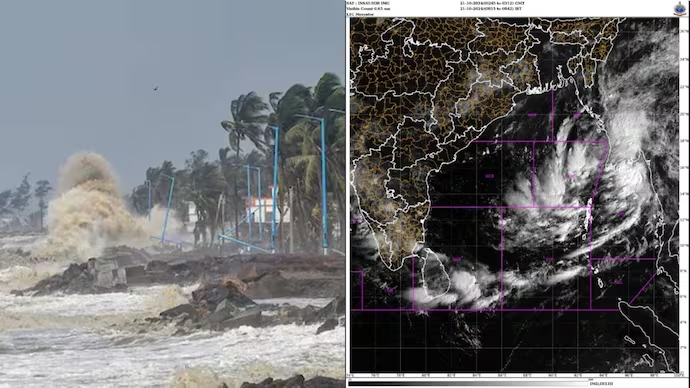Cyclones are not only significant weather phenomena but also carry names that often intrigue the public. Each cyclone name is carefully chosen from a pre-decided list by regional meteorological organizations. Cyclone Dana, which recently made headlines due to its impact, is no exception. But where did this name come from, and what does it mean?
The Process of Naming Cyclones
Cyclone names are decided by regional bodies responsible for tropical cyclone monitoring. In the case of Cyclone Dana, the name likely came from the naming list curated by the World Meteorological Organization (WMO) in collaboration with various meteorological agencies. These names are pre-assigned to upcoming cyclones and are chosen from contributions made by the countries in the respective cyclone-prone region.
In regions like the North Indian Ocean and surrounding areas, cyclone names are contributed by countries such as India, Bangladesh, Thailand, Sri Lanka, Maldives, and Myanmar, among others. Each country submits several names, which are then used sequentially. This system makes cyclone identification easier and helps in better communication with the public during disaster warnings.
The Name Dana and Its Meaning
Cyclone Dana’s name carries cultural and linguistic significance. “Dana” is a name with various meanings depending on the cultural context. In some languages, it means “wise” or “knowledgeable.” In certain regions, it is derived from ancient Greek origins, where “Dana” or “Danae” refers to a figure from mythology, known for her beauty and resilience.
In the context of naming cyclones, names are generally neutral and do not reflect the intensity or impact of the storm. However, the name Dana can metaphorically relate to strength and wisdom, traits often symbolically associated with weather systems that require both knowledge and preparedness to manage.
Why Name Cyclones?
Naming cyclones serves a practical purpose. It helps with easy identification, reduces confusion, and aids communication between meteorological services, the public, and disaster management authorities. The practice began in the mid-20th century to avoid the usage of long, complex meteorological terms when addressing storm warnings and advisories.
Before the formal naming process was adopted, cyclones were identified by geographical coordinates, which proved difficult for communication. With easily recognizable names like “Dana,” the public can quickly relate to warnings and updates about the storm’s progress and potential danger.

The Impact of Cyclone Dana
While the name itself may evoke an air of calm, Cyclone Dana turned out to be a powerful and destructive storm, as is the case with many tropical cyclones. The strength of a cyclone is not tied to its name, but the naming does make it easier for people to remember and prepare for potential threats.
Cyclone Dana’s path and impact were widely tracked, with its name becoming synonymous with high winds, heavy rainfall, and precautionary evacuations in the affected regions. Meteorological agencies closely monitor such storms, providing timely updates to mitigate damage.
Conclusion: The Meaning Behind Cyclone Dana’s Name
Cyclone Dana, like many named storms before it, follows a structured and meaningful naming process rooted in international collaboration. The name Dana, with its various interpretations of wisdom and strength, serves as a reminder of the power of nature and the importance of preparedness in the face of such storms. While the name itself carries historical and cultural significance, its usage in the context of a cyclone is a tool for efficient communication and public awareness.
As Cyclone Dana’s journey comes to an end, its name will be retired from the list, making way for new names to track future storms. Each cyclone’s story is a testament to the resilience of those affected and the vigilance of meteorological agencies in ensuring public safety.

